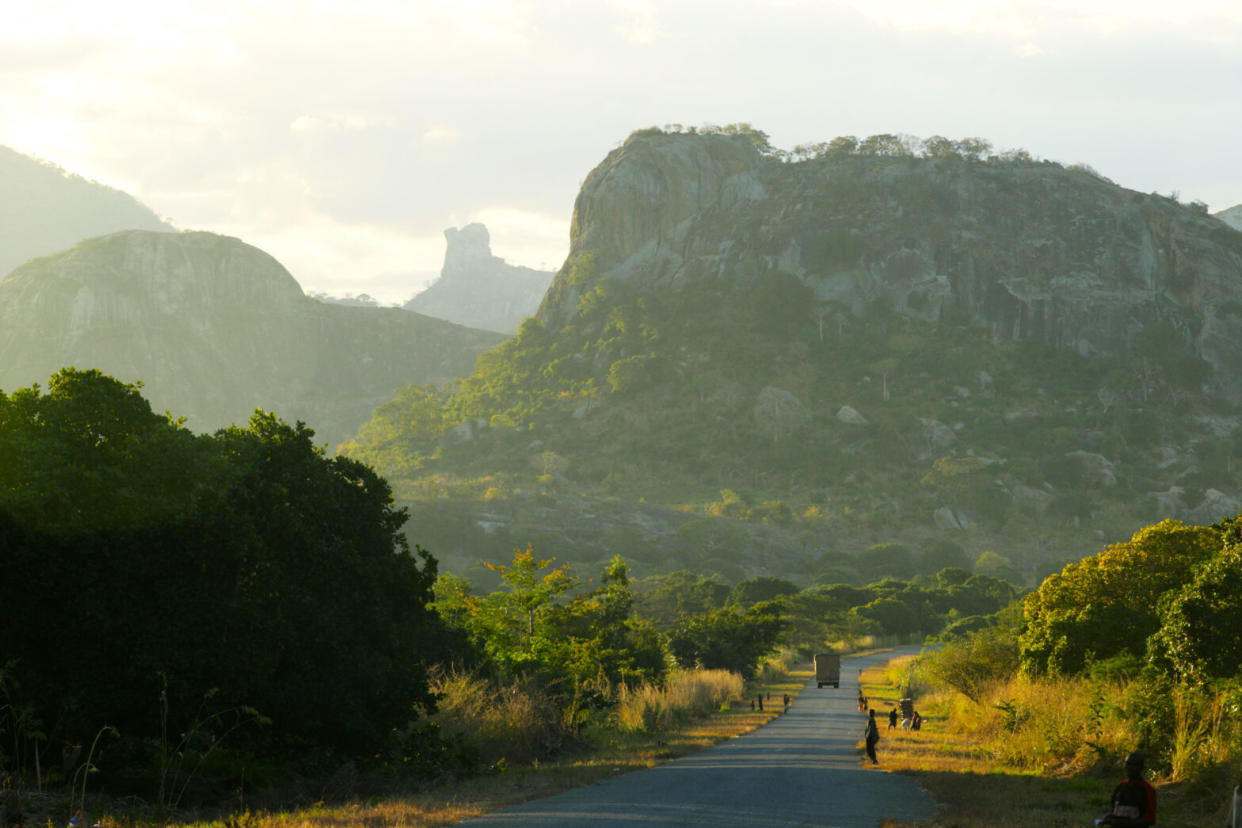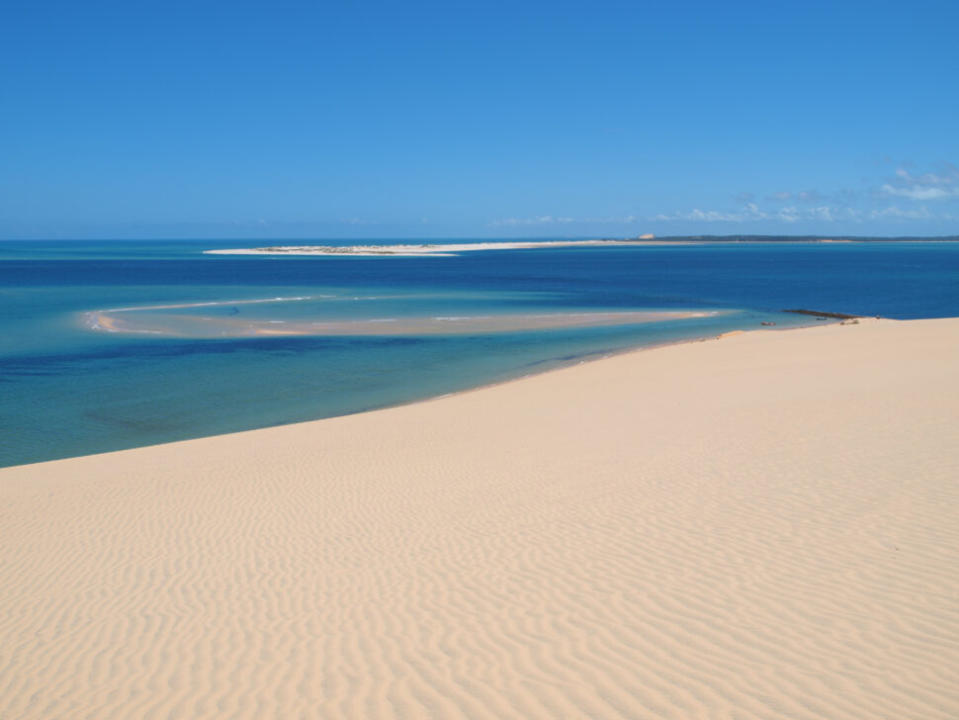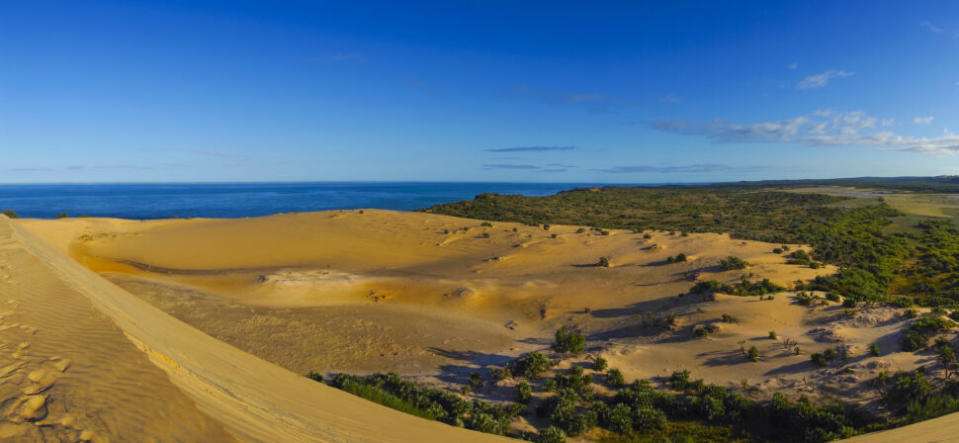This Coastal Town In Mozambique Was Named After a Local Tribal Chief

Among the scenic shores of Mozambique is the captivating coastal town of Vilanculos. The town was amed after Chief Gamala Vilankulo Mukoke, a respected figure in local history. The town’s name reflects its deep cultural roots, historical significance and indigenous heritage.
Vilanculos serves as the entry point to the stunning Bazaruto Archipelago, Mozambique’s prized underwater national park. From its past to its present, Vilanculos invites travelers to explore its unique blend of history and modern evolution.

Vilanculos: Mozambique’s Coastal Gem
Vilanculos, also known as Vilankulo, is a picturesque coastal town within Mozambique’s Inhambane Province. The town’s namesake honors Gamala Vilankulo Mukoke, a revered tribal chief, with some of its neighborhoods named after his sons.

The Historical Context of Mozambique
Vilanculos’s colonial history stretches back to the 15th century to 19th century. Unfortunately, Portuguese explorers settled in Mozambique once the knowledge of commodities like gold, pearl, ivory, and slaves spread. They ruled from the 1500s to 1975, according to BBC. After gaining independence from Portugal, there was a civil war that lasted almost 20 years. Now, Mozambique’s focus is continuously transforming the country into a more modern economy.
Today, Vilanculos is a growing tourism hub. The town basks in its rural heritage combined with modern tourist amenities. The stunning Bazaruto Archipelago is accessible via traditional dhow boats, and attracts adventurers with its coral reefs, diverse marine life, and the distinction of being the largest marine reserve in the Indian Ocean.
Exploring Vilanculos
Vilanculos extends beyond its role as a gateway to the Bazaruto Archipelago. Travelers are drawn to its pristine beaches, exciting nightlife, and a plethora of lodges and hotels offering excellent value. Also serving as a culinary hub, Vilanculos restaurants range from Bohemian-style cafes to upscale dining establishments.
A Look Into Mozambique’s Culture
People & Heritage
Mozambique’s cultural fabric brings together diverse ethnic groups. Each one contributing to the nation’s rich pool of languages, dialects, and traditions. The Makhuwa, Sena, Ndau, Tsonga, and Shangaan are among the most prominent groups shaping the country’s landscape. Despite external influences from Islamic traders and European colonizers, Mozambique’s indigenous culture lives on.
Artistry
Artistry thrives in Mozambique, with wood sculpture standing as one of its most beloved art forms. Dance also holds a significant place in the nation’s cultural expression.
Religious Diversity
Religion mirrors the nation’s diversity. Christianity, Islam, and traditional beliefs coexist in Mozambique . Christian missionaries left an indelible mark during the colonial era, and their legacy persists in the country’s religious landscape. As of 2020, approximately 62% of the population identifies as Christian, 19% as Muslim, while the remainder adheres to traditional beliefs or no beliefs,
Religion mirrors the nation’s diversity. Christianity, Islam, and traditional beliefs coexist in Mozambique. Christian missionaries left an indelible mark during the colonial era, and their legacy persists in the country’s religious landscape. As of 2020, approximately 62% of the population identifies as Christian, 19% as Muslim, while the remainder adheres to traditional beliefs or no beliefs, according to the National Statistics Insitute.
In essence, Vilanculos and Mozambique at large embody a long and deep combination of history, culture, and nature, inviting explorers to embrace their unique diversity.

